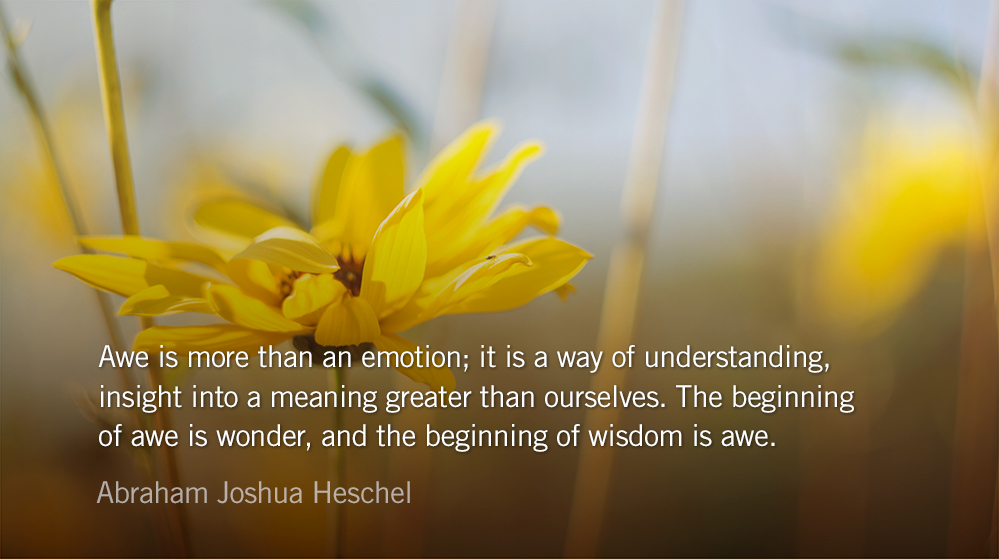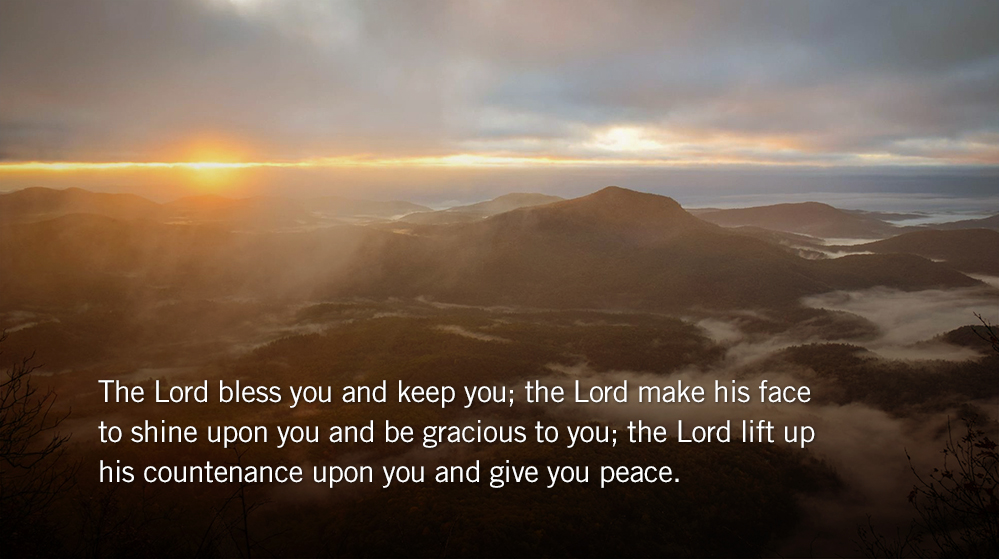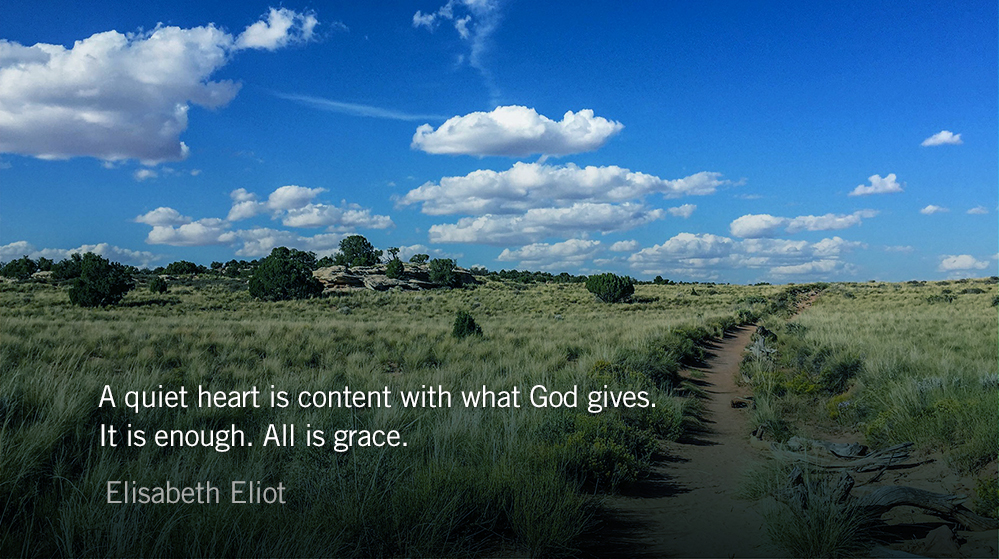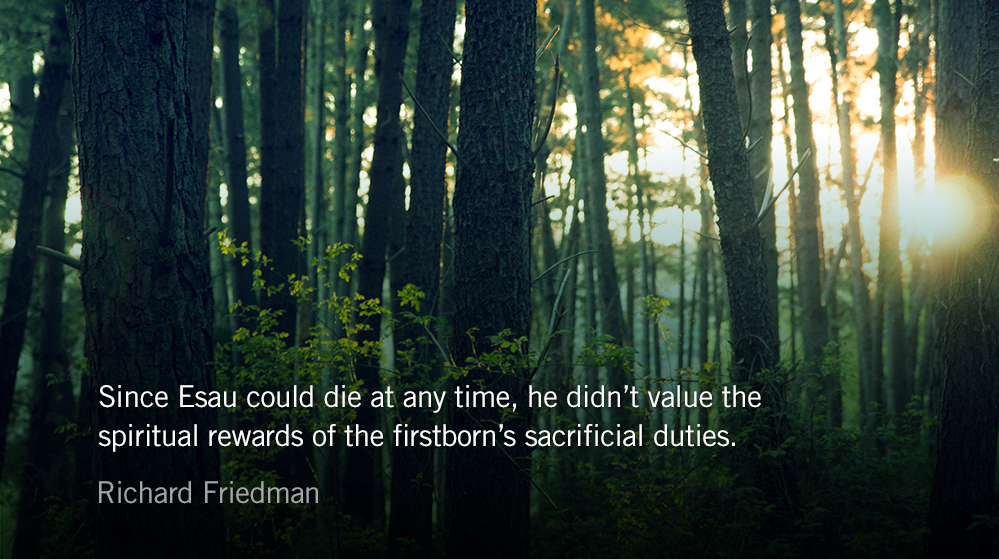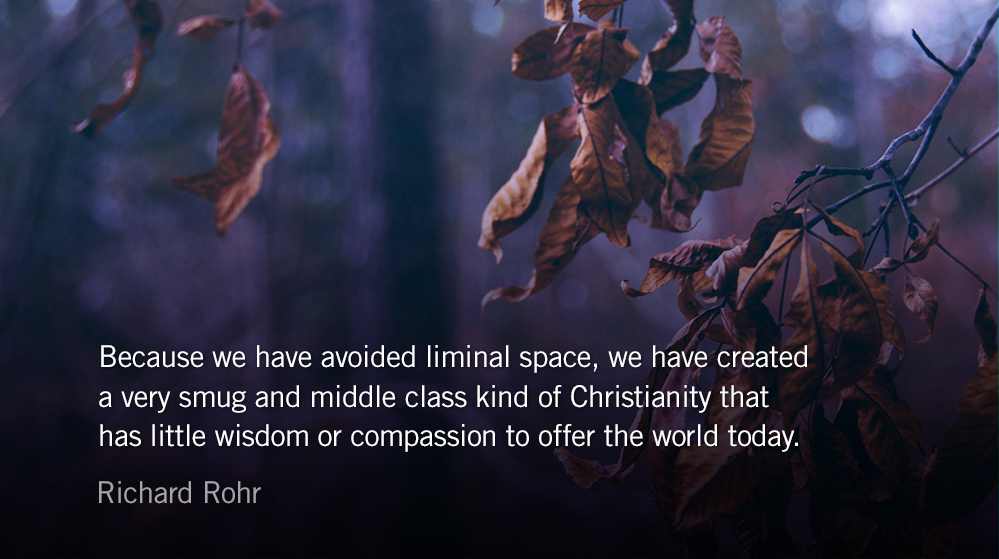We must go back to where we stand in awe before sheer being, facing the marvel of the moment.
― Abraham Joshua Heschel
Scripture: Genesis 28.12
And he dreamed, and behold, there was a ladder set up on the earth, and the top of it reached to heaven. And behold, the angels of God were ascending and descending on it!
Reflection: The Sense of the Ineffable
By Abraham Joshua Heschel (1907-1972)
The world presents itself in two ways to me. The world as a thing I own, the world as a mystery I face. What I own is a trifle, what I face is sublime. I am careful not to waste what I own; I must learn not to miss what I face.
We manipulate what is available on the surface of the world; we must also stand in awe before the mystery of the world. All we have is a sense of awe and radical amazement in the face of a mystery that staggers our ability to sense it.
Awe is more than an emotion; it is a way of understanding, insight into a meaning greater than ourselves. The beginning of awe is wonder, and the beginning of wisdom is awe.
Awe is an intuition for the dignity of all things, a realization that things not only are what they are but also stand, however remotely, for something supreme. Awe is a sense for the transcendence, for the reference to everywhere to mystery beyond all things.
Awe enables us to perceive in the world intimations of the divine, to sense in small things the beginning of infinite significance, to sense the ultimate in the common and the simple; to feel in the rush of the passing the stillness of the eternal. What we cannot comprehend by analysis, we become aware of in awe.
Faith is not belief, an assent to a proposition; faith is attachment to transcendence, to the meaning beyond the mystery.
Knowledge is fostered by curiosity; wisdom is fostered by awe. Awe precedes faith; it is the root of faith. We must be guided by awe to be worthy of faith.
Forfeit your sense of awe, let your conceit diminish you ability to revere, and the universe becomes a marketplace for you.
*Abridged from Who Is Man? by Abraham Joshua Heschel.
Prayer: The Refrain
“For God, who commanded the light to shine out of darkness, hath shined in our hearts, to give the light of the knowledge of the glory of God in the face of Jesus Christ.” — 2 Corinthians 4:6
– From The Divine Hours: Prayers for Autumn and Wintertime by Phylis Tickle
Full prayer available online and in print.
Today’s Reading
Genesis 28 (Listen – 3:17)
Matthew 27 (Listen – 8:45)

